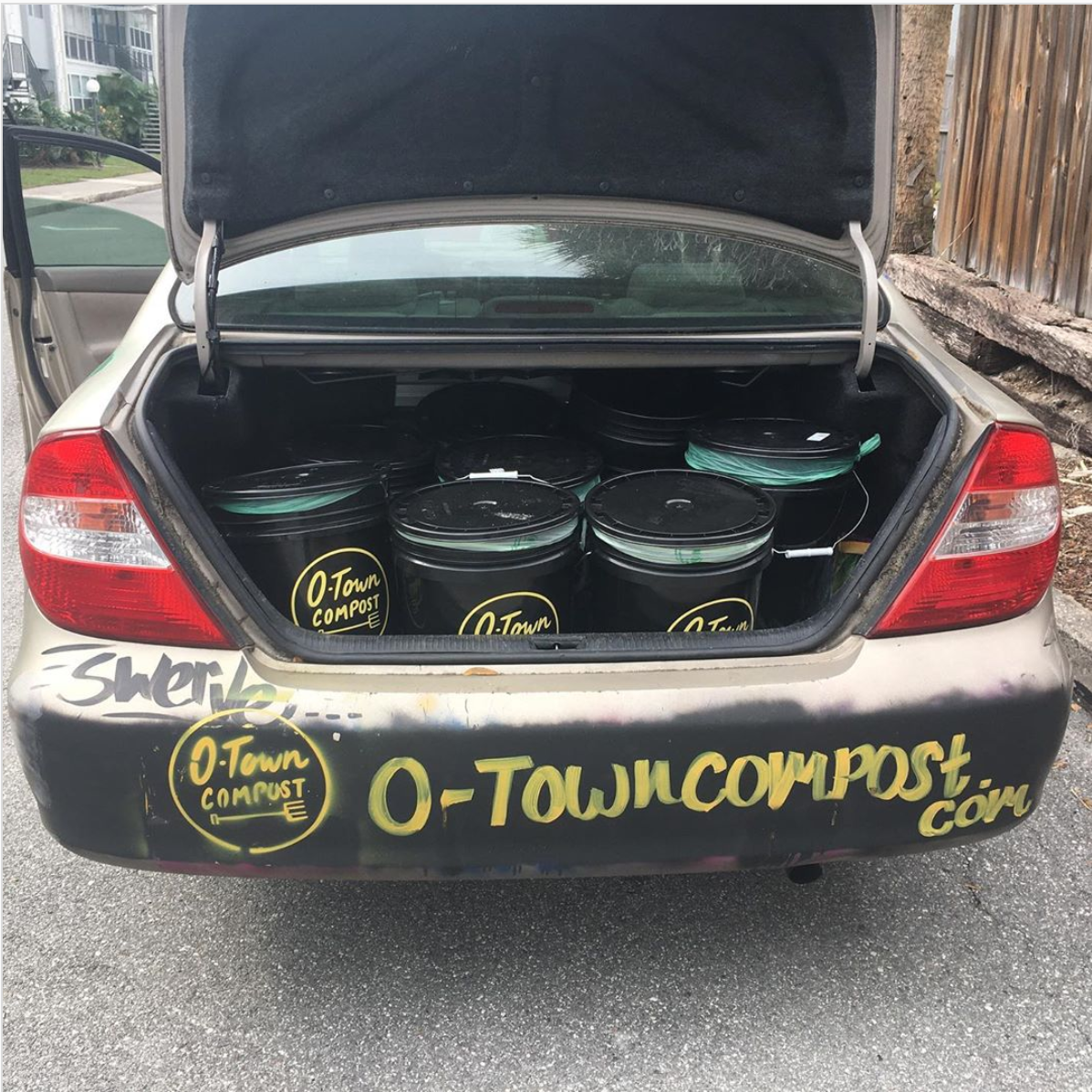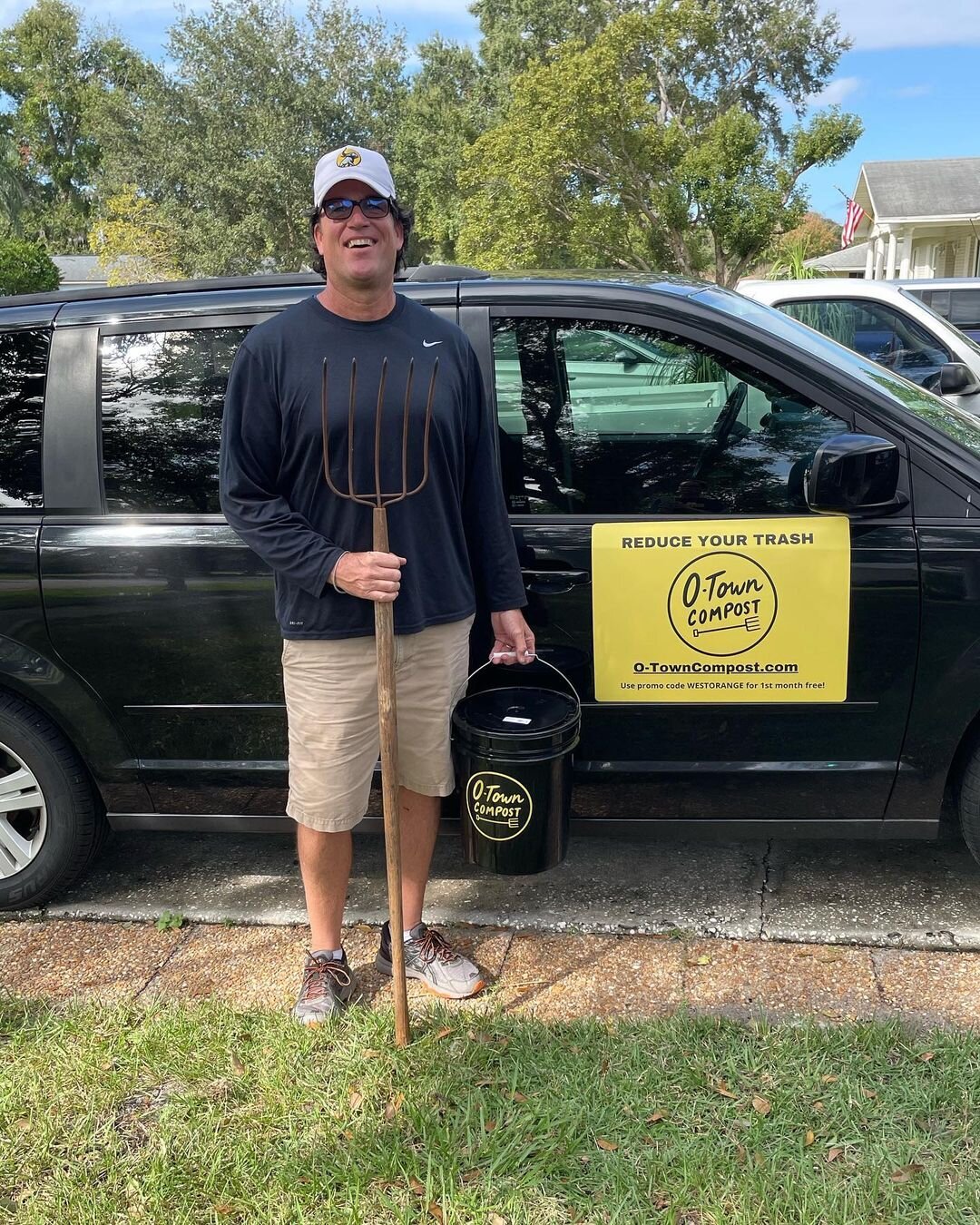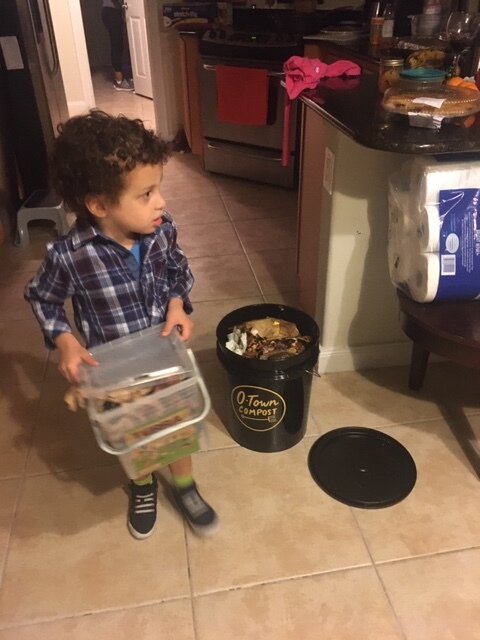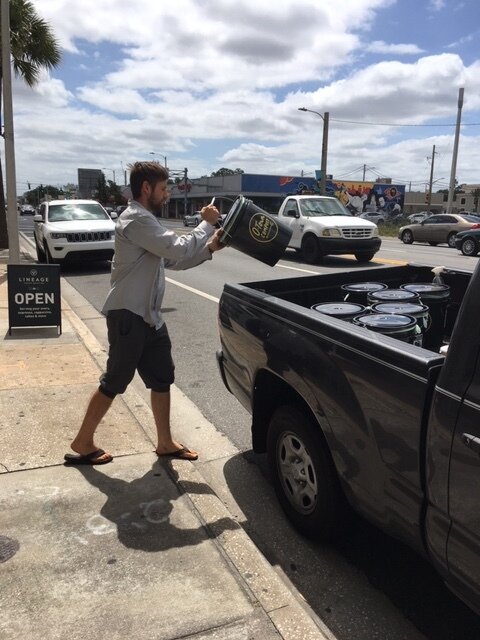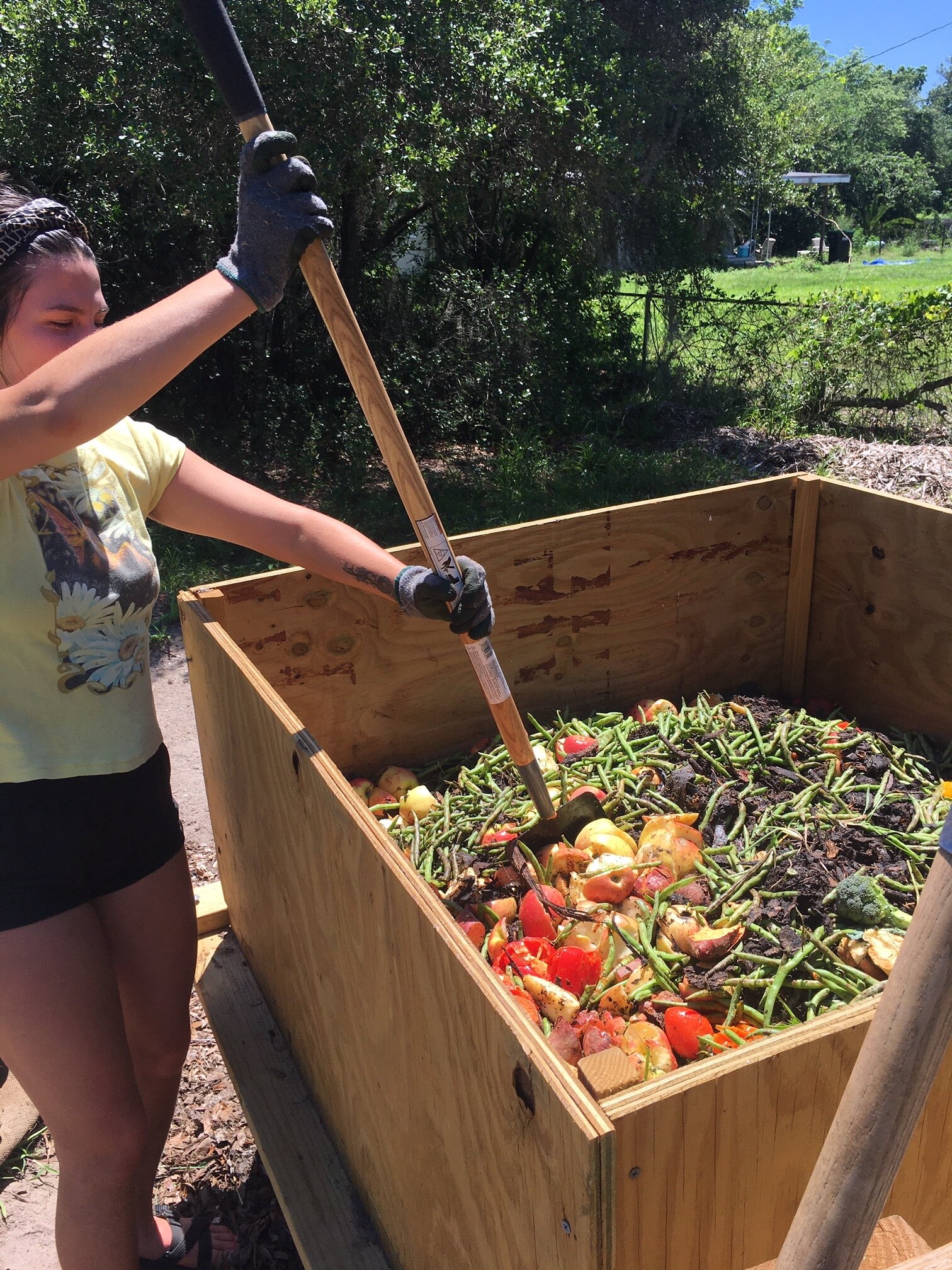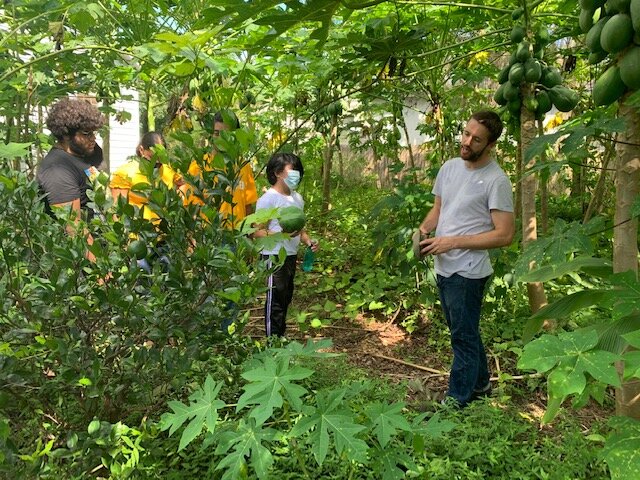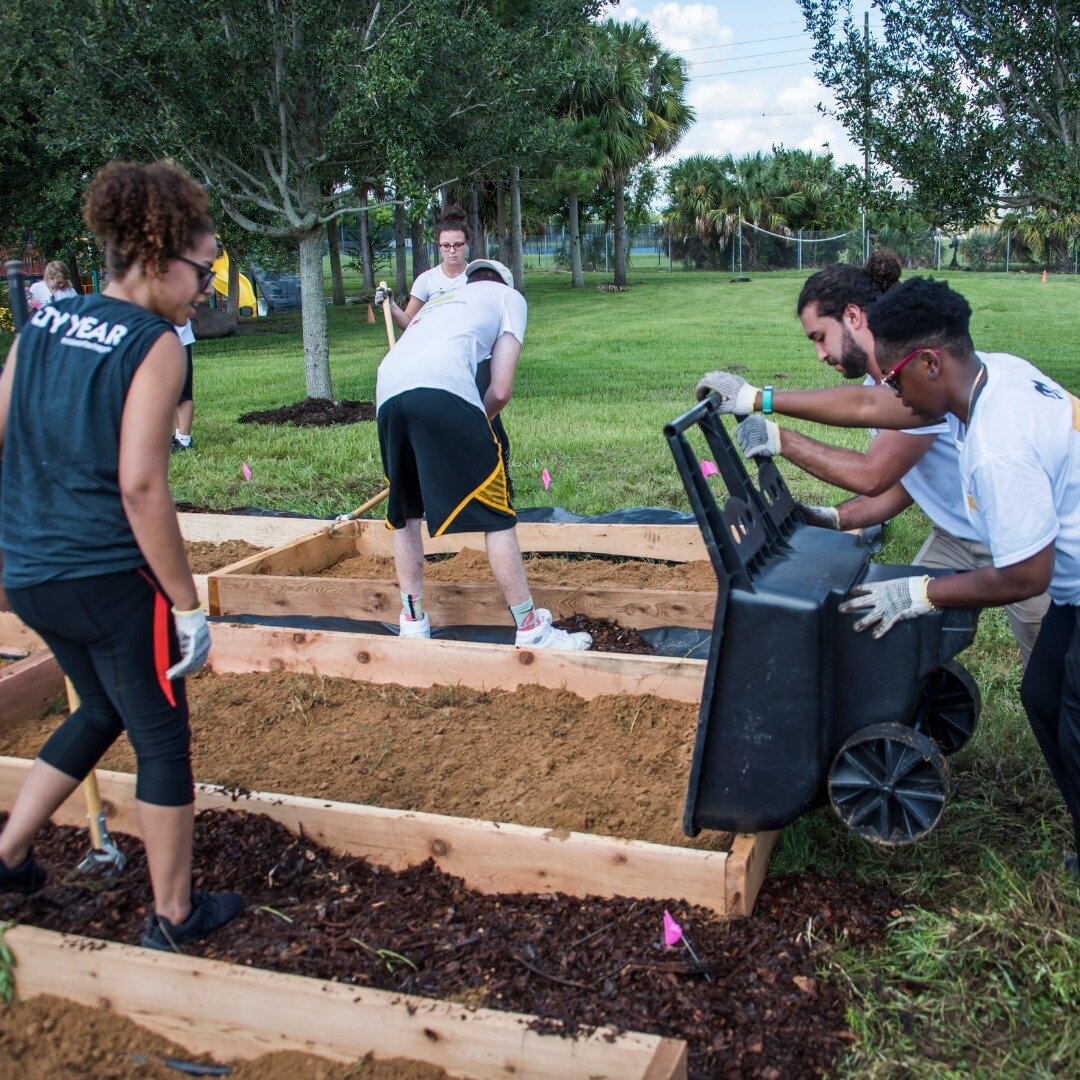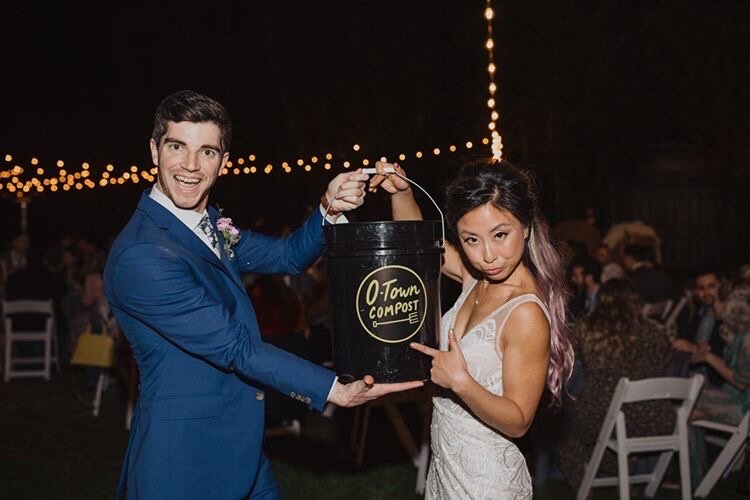Happy Holidays from O-Town Compost - (Check out this musical parody)
O-Town Compost driver, Christy Folk, is also talented at making music videos!
Episode #6 - CompostableLA, Los Angeles, CA - Founder, Monique Figueiredo
Monique founded Compostable in 2019 when she saw a need for additional community composting resources in Los Angeles. Her vision for a community-led organization is woven through the fiber of Compostable's foundation.
Enjoy listening to another fascinating interview with Monique!
Episode #5. Xander Shaw - Red Hook Community Composting Site, Brooklyn, NY
“At Red Hook Composting Site, Xander learned to compost by hand, lead volunteers, provide professional development and youth empowerment through composting, and model best management practices.”
This was a fascinating conversation with Xander on The Community Composting Podcast, as we dived into everything from NYC’s $2 billion dollar trash problem to how to keep your compost pile rodent and pest-free. I hope you enjoy listening! - Charlie
Florida State Bill 1764 calls for Sustainable Florida Future
A couple weeks ago, State Senator Janet Cruz from Hillsborough County introduced SB 1764 calling for businesses and institutions who are generating in excess of 1 ton of food waste per week to find an outlet to recycle their organic waste. This would affect universities, cafeterias, restaurants, cafes, caterers, and any food service business out there that sends a significant volume of organic waste to the trash each night.
Here at O-Town Compost, this bill didn’t take us by surprise. We knew something like this was coming eventually, and have been urging more businesses to get on-board to start composting before it becomes mandatory and uncomfortable to do so. This same policy has been passed in states like Massachusetts, Vermont, Maine, California, and cities like Austin, TX, New York City, Seattle, etc. It’s the gateway to more aggressive restrictions on food waste, because legislators are beginning to realize that harmful greenhouse gases created by organic waste at the landfill is speeding up climate change.
This bill is great news for community composters around the state including Suncoast Compost in Tampa, Apple Rabbit Compost in Jacksonville, and Compost For Life in Miami. For us composters to meet this new onslaught of food waste, we’re going to have to hire more people and find more capacity to process the material.
We urge everyone to contact your district’s state representative, and let them know how passionate you are to see the state of Florida move towards more organic waste diversion. Here, we even prepared you a template:
Dear [insert State rep.],
On February 26, 2021 Senator Janet Cruz filed a bill that would require commercial businesses and institutions to separate and recycle the food waste that they generate up to one ton per week. This policy is a huge step in the right direction for Florida to meet their waste diversion goals. If the state had had this bill in place ten years ago, the state may have met their 75% recycling rate goal by 2020. But instead, the goal came and went.
The bill represents the way things are moving around the country to divert food waste from the landfill/incinerator, where it creates harmful greenhouse gases. Other states and cities around the country have already passed a similar bill (Massachusetts, Vermont, NYC, Austin, TX, etc). It's time that Florida join the wave of progress towards finding a solution for the solid waste that future generations will eventually have to deal with.
The bill would also give a boost to the already thriving community composting industry, and provide additional jobs in the green sector. Composters around the state, like Suncoast Compost (Tampa), O-Town Compost (Orlando), and Compost For Life (Miami) are moving the needle in providing the food waste recycling infrastructure that we need to enact such a bill. There's thousands of residents in Florida choosing to pay a community composter to recycle their household food scraps. Shouldn't the commercial sector, where most of the state's food waste is generated anyways, have to take ownership as well?
Sincerely,
[Name]
[District]
Episode #3. Compost Queens, San Antonio's Bokashi Composters
Kate Jaceldo is the co-founder of Compost Queens, a company that transforms food waste into compost. A special-ed teacher, social worker and transition facilitator for a public school district, her passion for a sustainable food system and concerns about the climate crisis radically changed her course. Born and raised in South Texas, today the Compost Queen works hard to save the planet one bucket at a time.
Compost Queens: https://www.compostqueenstx.com/
FB and IG: @compostqueens
Subscribe for O-Town Compost's convenient residential service and use promo code WESTORANGE for your first month free! https://o-towncompost.com/subscribe
FB Page: @otowncompost
Instagram: @otowncompost
Twitter: @otowncompost
2020: A Year To Remember
Goals Achieved
In spite of a global pandemic, O-Town Compost managed to recycle over 50,000 pounds of food scraps in its inaugural year. Our team grew from one to four members comprised of Orlando’s most passionate and dedicated individuals. The type of people who don’t think twice before reaching into a bucket full of decayed food waste to pull out a rubber band or a bread tie.
Most importantly, the Orlando community has shown us that they support our mission whole-heartedly. Over 140 residents and businesses have chosen to align themselves with our values to keep food scraps out of the landfill. Considering that it was our goal to reach 100 subscribers in our first year, we blew it out of the water!
Hardships
Although, 2020 wasn’t all cupcakes and rainbows. Unfortunately, the pandemic weakened the economy enough that a dozen or so subscribers had to cancel service. The sad truth in our current economic system is that recycling food waste is a luxury not a norm. This is why we are pushing local municipalities and government officials at the City of Orlando, Winter Park, and Orange County, to begin to make plans for food waste recycling infrastructure and policies mandating large generators of commercial food waste to divert organics from the waste stream.
Also, let’s not pretend that composting isn’t laborious. We have to thank all the OTC staff and volunteers who put their sweat into the semi-manual process of screening finished compost and emptying ASP bins with pitchforks. I know my back needs a vacation.
September Composting Site Tour
It gives us immense joy to show people how their banana peels, paper towels, and celery stocks become black gold compost. We return to the story time and time again of how increased soil health can fuel a local food abundance and create a resilient community.
In the Fall, we gave tours of our composting site that doubled as a Permaculture tour. It was demonstrated how humans can thrive in a biodiverse system and passively grow their own food.
At the composting site there’s a wide variety of edible and medicinal plants growing, such as moringa, papaya, Tandora cucumber, katuk, Okinawa spinach, and Barbados cherry. A dozen or so subscribers attended and brought their friends and family members to learn about the composting process. Some went home with plant cuttings that they could propagate in their own gardens. Soil is truly life, and our health starts with the health of our soil at the base of the food chain.
Ambitions for 2021
We believe that we’re on the precipice of something big here for 2021. If we continue to meet our goals, by the end of 2021, we will be capturing and recycling 5 tons of food scraps every week. Increasing our capacity by 5x. This, of course, will be difficult to achieve until we land a larger composting site, and the right equipment, but a round of investment is likely in store for 2021, so we can scale.
Right now we’re enjoying the journey while O-Town Compost is becoming a household name in Central Florida. Nonetheless, our eye if fixed on the prize, providing the capacity to recycle all of the organic waste out there in Orange County, and to sustain a zero waste society.








